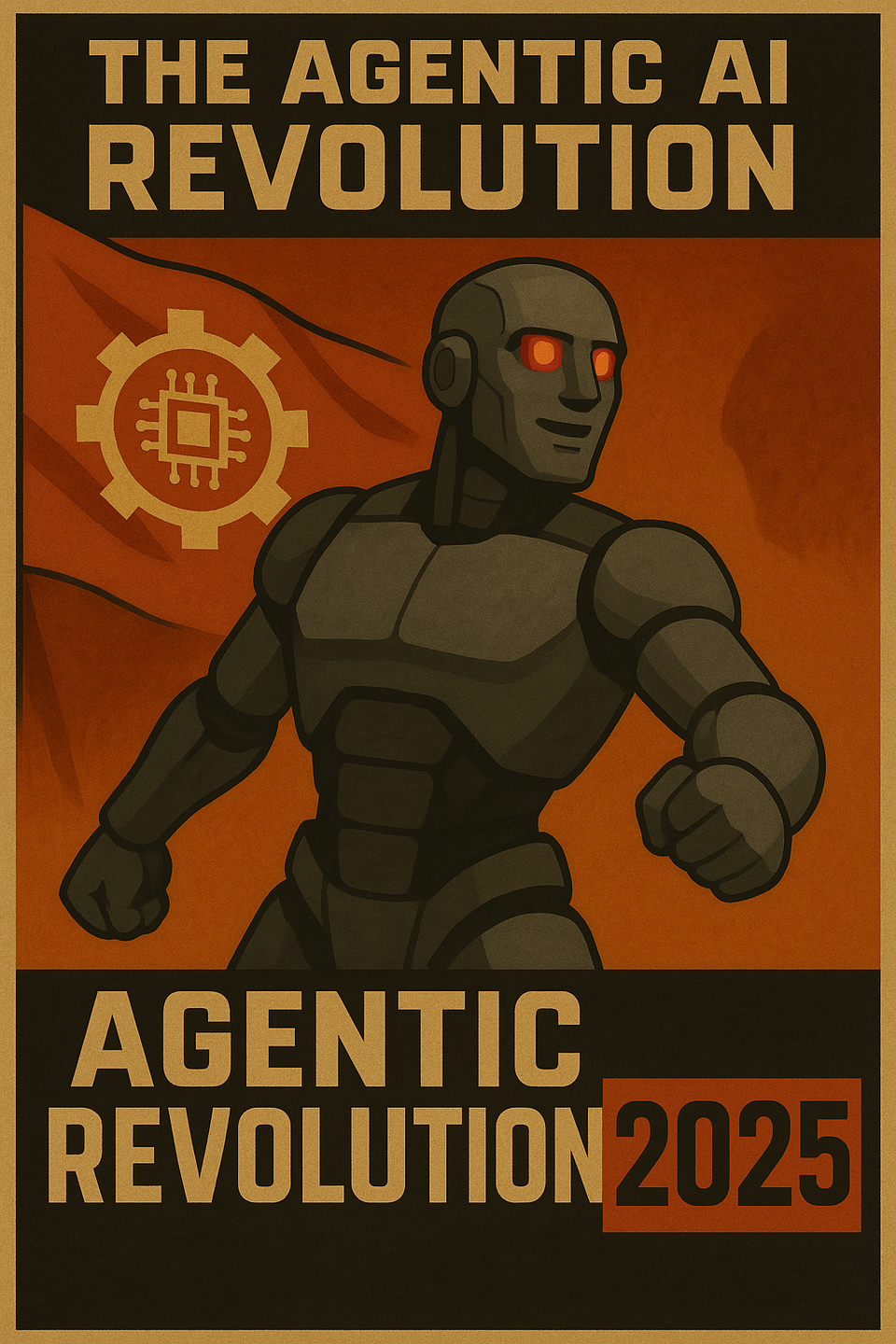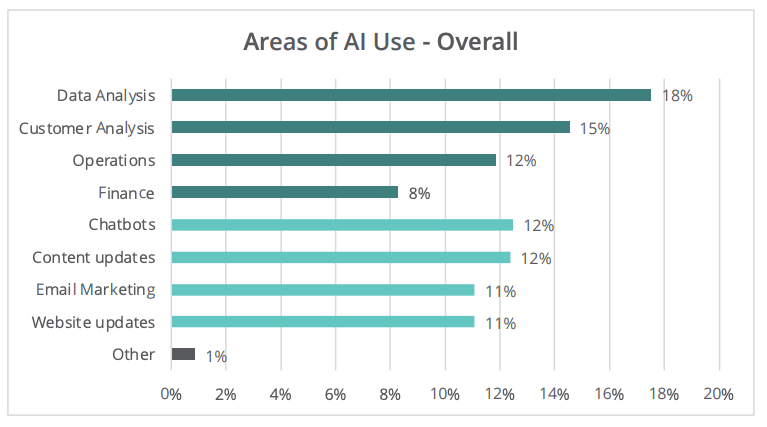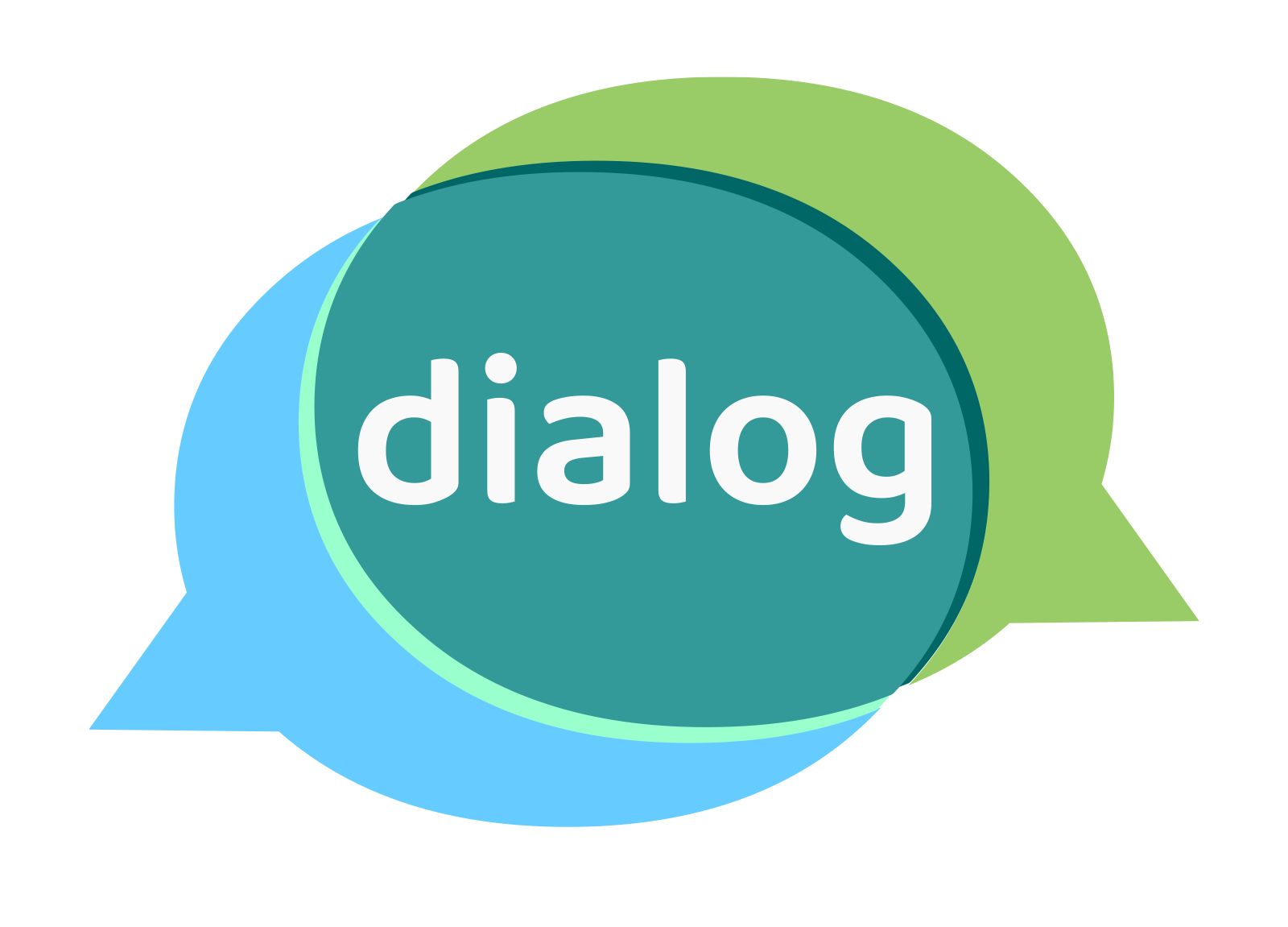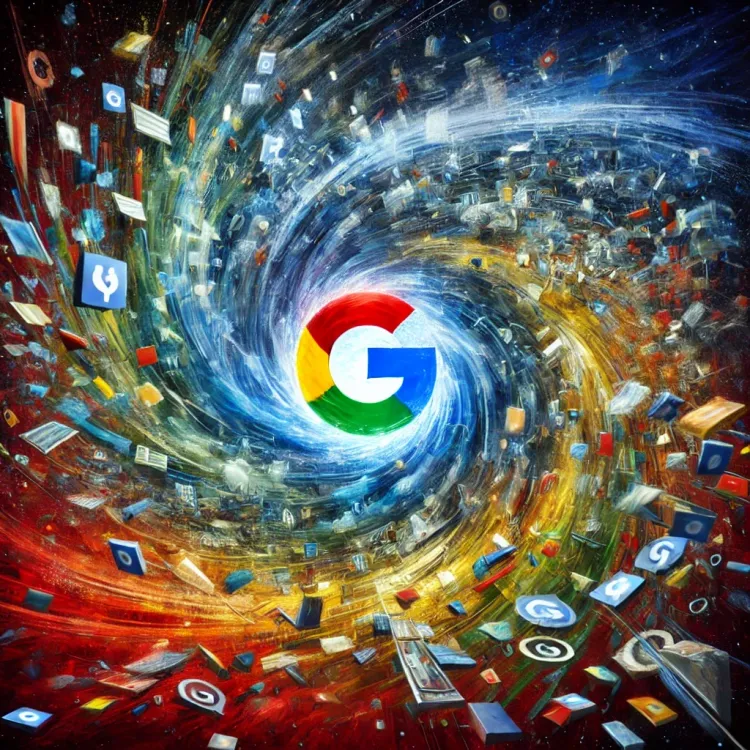ChatGPT Ghiblified, Agentic Local Search, EU SMBs, AI Shock

Thinking Out Loud
ChatGPT Usage Explosion: The rollout of ChatGPT's improved image generation created a viral frenzy, boosting ChatGPT to new usage levels and straining the company's servers and GPUs. Weekly active users crossed the 150 million mark for the first time. Social media was flooded with AI-generated images in the style of Studio Ghibli (Hayao Miyazaki), who was upset by the massive infringement of the animation studio's character designs. There might be legal action; however, the episode broadly highlights the degree to which copyright issues (and infringement) are directly bound up with generative AI. On the flip side, global awareness of Studio Ghibli has probably dramatically increased.
Gemini Leadership Shakeup: Despite Google's massive distribution, the company's Gemini app is lagging in consumer adoption. Google is therefore making changes in its AI leadership. Sissie Hsiao is stepping down from her role in charge of the Google Assistant/Gemini app, to be replaced by Josh Woodward, the head of Google Labs. Woodward is responsible for Google's most successful consumer AI product: NotebookLM. The change reportedly reflects a shift to focus on productizing and more consumer-friendly applications for AI.
SMBs Bullish on Digital Ads: Morgan Stanley surveyed 240 US SMBs, "with at least $5K in ad spend" annually. It found that SMBs are continuing the years-long shift budgets to digital. Social media ads (Meta) had the highest penetration (88%) and perceived ROI, consistent with Dialog data. YouTube and Google search ads, TikTok and Reddit were also being used; 19% were spending on Reddit, and podcasts are on the radar. There was a positive response to use of AI in ad platforms, with respondents citing improved ROAS. More than 66% of the SMBs used digital agencies to create and manage their campaigns. This compares with only 18% of SMBs in our Q1 sample who used agencies/vendors for marketing. The Morgan Stanley data thus doesn't reflect the broader SMB market.

The 'Agentic Internet' and Local
The era of the "agentic internet" is almost upon us, which could have profound implications for local search. Last week Amazon introduced a new agent called Nova Act (part of a larger Nova platform). As with other agents, it's intended to autonomously control a browser. This follows the introduction of "interests," a shopping agent for Amazon's mobile app. The company now joins OpenAI, Claude, Gemini and Manus in (theoretically) being able to research and perform complex tasks and transactions on behalf of users. Most of these tools so far are more theory than practice. As I've said elsewhere, using OpenAI's Operator is like watching paint dry. But other agents, such as OpenAI's Deep Research, work fairly well. All these tools will get better. And Nova has an SDK that will allow third parties to build on top of it. In its demo video, Amazon showcased an apartment search, sorting by distance to a nearby train station. In the video below the new Alexa+ (relying on Nova Act) searches for and schedules an appliance repair technician via Thumbtack.
This is a demo so take it with a grain of salt, but it points toward a future where search and local search are far less "manual" and agents can do most or all of the research (and perhaps booking). This will mean less direct interaction with websites and reduced contact ahead of time with businesses themselves. The funnel will collapse – as in shrink. There are lots of implications for consumers, marketers, brands and SMBs here. The only question is how long will it take to materialize?

NEWS & NOTEWORTHY
- Here's how to turn off Google's AI Overviews.
- ChatGPT 4o images can now effectively do web design.
- Perplexity introduces new "answer modes" to improve search.
- Is Microsoft better positioned in AI long term vs. Google?
- Study: AI bots' factually inaccurate summaries of news articles.
- Informal AI "search" test: Claude best, Gemini worst.
- Medicine: AI being integrated into patient care, but makes mistakes.
- OpenAI image-gen taking a "more relaxed" approach to moderation.
- AI SDRs having a harder time gaining traction than anticipated.
- Large gender gap in ChatGPT work adoption: women 16 points behind.
- Like the "dot-com bust," is an AI correction inevitable?
- Technically unpacking Claude's/AI's black box.

Survey: EU SMBs Ahead of US in AI Adoption
A new survey of roughly 500 European small businesses across Germany, UK, Sweden, France and Poland (from SIINDA and Duda) looks at AI adoption. It found that 58% had adopted AI, while 18% said they had no need in their companies. This compares with 54% in Dialog's most recent Q3 2024 SMB survey, who were using or testing AI (39% actively using). The majority of EU respondents (60%) professed "little knowledge" or basic understanding of AI but saw it as an opportunity (70%) rather than a threat. The top identified AI use cases (below) were: 1) data analysis, 2) customer analysis, 3) chatbots (customer service?) 4) content updates, 5) operations, email marketing and website updates and 6) finance. Time and cost savings were the top perceived benefits. By comparison, Dialog's Q3 survey found 1) time savings, 2) improved productivity, creativity, efficiency, 3) enhanced customer experience and 4) reduced costs were the top benefits. The biggest adoption challenge for AI users in the EU survey was data/privacy compliance.

There was no discussion of specific applications being used or whether adoption was focused on the major AI platforms (e.g., ChatGPT, Gemini) vs. AI layers in existing SaaS tools. There was also no discussion of usage frequency. There are comparable numbers of SMBs/SMEs in Europe and North America. Traditionally Europe has lagged North America in technology adoption trends; however this data suggests that EU SMBs are ahead of their North American counterparts.

Is an 'AI Shock' Coming?
Between roughly 1999 and 2011, the US lost more than 2 million jobs due to less expensive Chinese imports and the outsourcing of manufacturing to offshore labor – the China Shock. One question now confronting AI is: will there be a comparable "AI Shock"? This is a complex question without a simple answer. The memory of the China Shock and related job losses is partly what's driving Trump's global tariff plans. While ADP's most recent jobs report suggests a still-healthy employment market, consumers are pulling back on spending as sentiment worsens. The US is probably heading into a recession; it's just a question of severity. Regardless, the logic behind the decision to turn manufacturing over to cheaper labor equally applies to AI.
While cost savings isn't the primary driver of AI adoption, it's a recognized benefit. (Our data indicate that "reduced hiring needs" is another benefit for SMBs and agencies.) The logic of the market, especially for public companies, will drive them to push out more costs (read: humans) in a weakening economy. AI is a way to do that and/or to reduce hiring. The IMF predicted that 40% of global jobs will be affected by AI; 60% in advanced economies. That doesn't mean 60% will lose their jobs. But it would be naive to say jobs won't be lost; it's already happening. And AI will come for professionals and "knowledge workers" this time. Over the next decade it's possible that well over 2 million existing US jobs will be adversely impacted by AI.

Funny | Disturbing | Sad
- H&M using "AI clones" of real models in new fashion ads (NYT).
- Deceased actress Suzanne Somers' husband "reunites" with AI twin.
- ChatGPT Deep Research enters the dating realm.
- Google AI Overviews for health information risk misleading consumers.
- AI data centers create pollution hazard in the real world.
- China using LLMs as an additional tool of censorship and repression.
If you're not getting this in your in-box, you know what to do...





